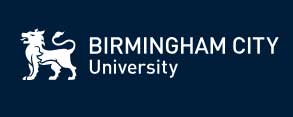About Islamic Finance - Msc in Birmingham City University
The MSc Islamic Finance meets the current demand for specialist knowledge and skills in a rapidly expanding field.
The course provides you with the opportunity to explore the philosophical foundation of Islamic finance and the legal framework for Islamic financial institutions. It discusses the basic and advanced theories underlying Islamic financial institutions.
This course is critical in establishing the overall parameters of Islamic finance, offers a practical approach to the workings of the current Islamic financial practices in the banking industry in addition to Non-Government Organisations (NGOs). Also, this course encourages you to understand the connection between the theory of Islamic finance and the real world applications of the Islamic banking and Faith based NGOs.
You will communicate complex and abstract ideas in an articulate and confident manner, as well as learning a host of transferrable skills that will stand you in good stead for when it comes to securing employment in Islamic financial institutions, banking and NGOs.
The course aims to develop your ability in analysing and evaluating the principal features of Islamic finance. You will study the major concepts, values, principles and rules that dictate the discipline. You will be able to link between the Islamic finance and the mainstream global financial system with analytical abilities and problem solving skills through critical and creative thinking. The topics covered include the structure of the Islamic economic & financial system and its philosophy, Islamic contracts, Islamic financial products for the Islamic Financial Institutions & Faith based NGOs, regulatory frameworks, Shariah advisory standards. You will also be able to examine the practices of Islamic finance institutions and recommend the way forward.
You will have the opportunity to select the optional modules in the area you want to explore more. The rationale for optional modules is based on our vision on supporting students be successful in career in Islamic finance. The critical analysis skills that you will develop while studying on this course will enhance your employment opportunities in the financial, banking, business and faith based NGOs sectors, as well as enabling you to acquire a strong basis for progression to doctoral studies.
The international focus of the course is derived through a variety of means including the student body, the teaching team and the use of international teaching materials. Moreover, the course also enables you to be confident in the application of industry-specific skills, for example, with the use of platforms such as DataStream, and with problem-solving approaches having been exposed to real-life scenarios through industry guest-speaker workshops.
Moreover, you’ll also have the opportunity to gain industry experience by going on a professional placement. Whatever route you choose, the knowledge attained from the course will help you to seek a variety of employment in the sector nationally and internationally.
Academic qualification equivalents
- Bachelors degree - (Pass) in a related subject
English language requirements (one of the below):
- An IELTS score of 7.0
- A TOEFL score of at least 600 (paper-based test) / 100 (internet-based test) / 250 (computer-based test)
- PTE score 50-58
Birmingham City University Highlights
| Institution Type |
Public |
| Student Population |
25,800 |
| FAFSA Code |
G12215 |
| Application Cost |
20-26 GBP for UCAS |
| Accreditation |
ACCA, CIMA, RIBA, and, many others |
| Average Cost of Attendance |
18,086.5-27,575.5 GBP |
Birmingham City University Average Tuition fees and Other Expenses
This figure is an estimate of the basic living costs during the first nine months of studies, which covers most expenses including average tuition fees.
| Items |
Amount per annum in GBP |
| Tuition and fees |
5,700-13,200 |
| Accommodation |
5,483-7,013 |
| Food |
2,600 |
| Books and supplies |
450 |
| Utilities like gas, laundry, electricity, etc |
2,355 |
| Transportation |
390 |
| Leisure/social activities |
600-960 |
| Miscellaneous such as TV license, telephone cost, police registration, subscriptions, etc |
490.5 |
| Insurance |
15-117 |
| Total |
18,086.5-27,575.5 |
